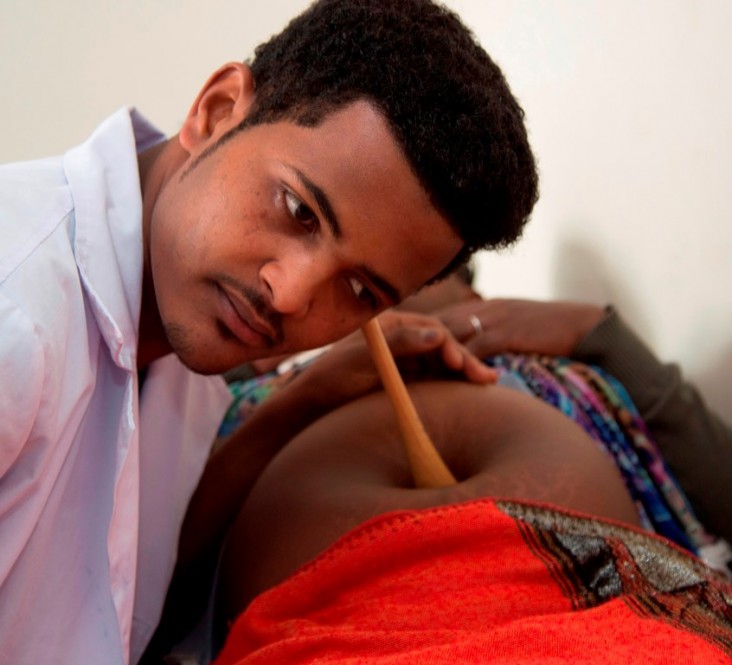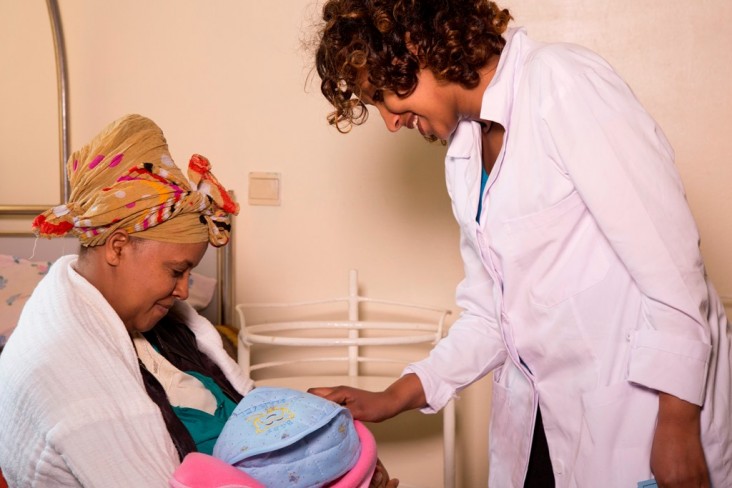
For Immediate Release
Addis Ababa - The U.S. Agency for International Development (USAID) and its partner Jhpiego marked the successful completion of the Strengthening Basic Emergency Obstetric and Newborn Care Project of the global Maternal and Child Survival Program. With the aim of contributing to the ultimate goal of ending preventable child and maternal deaths within a generation the program supported 44 health centers with maternal and newborn health interventions and 24 health facilities in strengthening postpartum family planning services in Oromia, Amhara, the SNNP and Tigray regions. Results of the program include that 19,250 pregnant women received care prior to giving birth; 23,000 mothers successfully delivered at health facilities; 279 newborns who couldn’t breathe when born were saved through successful resuscitation; and 14,000 women received family planning counseling after giving birth.
In the past two years, the program helped health facilities to improve the quality of maternal and newborn health services by training birth attendants on the skills needed to manage childbirth complications by establishing and/or strengthening basic emergency obstetric and newborn care in 172 additional health centers in Oromia, Amhara and the SNNP regions. USAID worked closely with the Ministry of Health to support the national maternal and newborn health quality improvement initiatives, to increase postpartum family planning services and to drive the national maternal and newborn health research agenda. To help institutionalize respectful maternity care, basic emergency obstetrics and newborn care and postpartum family planning, 472 health care providers were trained through the program and center managers were trained on using quality improvement tools to ensure continued learning and improvement processes are in place.

The Maternal and Child Survival Program also supported comprehensive programming in maternal, newborn and child health, immunization, family planning, and reproductive health, nutrition, health systems strengthening, water/sanitation/hygiene, malaria, prevention of mother-to-child transmission of HIV and pediatric HIV care and treatment in 24 countries around the world..
Speaking at the event, USAID Health Office Director BethAnne Moskov relayed the account of one woman who had benefitted from the program, “I was in labor for more than a day, tired and desperate both for myself and the baby in my womb. But my midwife Fozia was on my side throughout my labor, informing me of the progress and reassuring me. Eventually, I gave birth to a baby boy who was not crying. I was devastated. Though I was not sure the baby would survive, Fozia helped the baby breathe and finally, with God’s help and Fozia’s efforts, the baby started crying. He is now a healthy and smiling seven-month-old baby.”
The $3.8 million program was implemented by Jhpiego from 2014 to 2016. USAID will continue working in maternal and child health through its Transform awards which will be implemented in eight regions, four in the major regions and four in the developing regional states working to support the Ministry of Health’s ambitious Health Sector Transformation Plan goals.
See also:
USAID Remarks Maternal and Child Survival Closeout [PDF, 131kb]







Comment
Make a general inquiry or suggest an improvement.